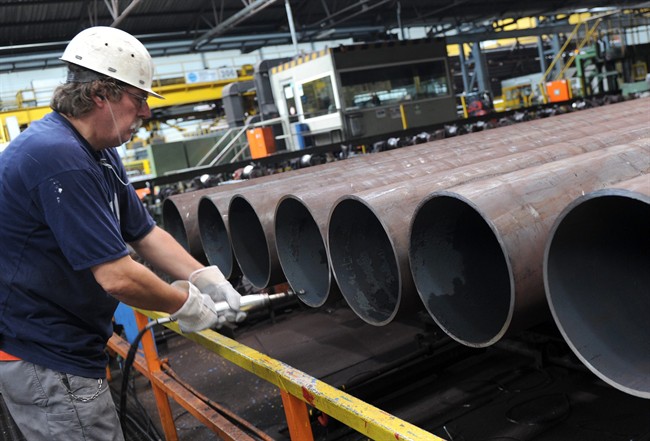A local business expert is reacting to new American tariffs on aluminum and steel.

The decision to impose a 25 per cent tariff on steel imports and a 10 per cent tariff on aluminum imports coming from Canada, Mexico and Europe came down from the White House Thursday.
The tariffs took effect at midnight, Friday, June 1.
It won’t be long until London starts to feel the impact, said Gerry McCartney, CEO of the London Chamber of Commerce.
London is known for manufacturing military vehicles. According to McCartney, there are 38 companies in the city associated with the defence sector in Canada and a lot of that goes to the United States.
“Last year we exported $9.3 billion in aluminum and $5.5 billion in steel to the U.S. That’s 90 per cent of our total exports going down to the United States,” he said.
“We push a lot of steel back and forth across that border because of our integrated industries.”
The U.S. Secretary of Defence has spoken about this integrated network, noting that Canadian suppliers provide a lot of the materials for U.S. defence system, said McCartney.
WATCH: Ontario Premier Kathleen Wynne calls Trump a ‘bully’ over steel, aluminum tariffs on Canada

“If we clog this up with trade wars, every country is going to do the same and instead of this rather buoyant economic recovery we’re experiencing around the world, it’s going to get all clogged up with tariffs again,” he said.
McCartney says the tariffs can do one of two things — they either slow down the amount of products being exported or those sending products to the United States won’t be able to do so without impacting their profit margins.

Get breaking National news
If the first instance happens, that means lost jobs and layoffs, said McCartney. If we go the second route — which McCartney feels is likely — prices will rise and consumers will be the ones who pay.
McCartney said the impact will be almost instant.
“Think of the number of things that have aluminum or steel in them — the list is endless. You’re going to see retail prices climb on those [products] quite quickly.”
Although not impossible, tariffs can be very difficult to remove, said McCartney.
He likened them to a stop sign that would be put in place after a child had been injured at an intersection. He says after three years of the sign being in place, even if there have been no injuries, it’s not likely the sign will get taken down, at least not for a very long time.
“I think the same thing applies to tariffs. Once that comfort level gets in, you can see these tariffs there for a good long time. That’s not going to serve our economy or the global economy well at all,” he said.
Canada and America have an integrated network which McCartney says, makes the decision even more unbelievable.
“About 9.5 million people in the States are directly employed as a result of NAFTA. Putting these tariffs out there does no good whatsoever in trying to negotiate a better NAFTA deal and it does even less as far as the European Union and CETA is concerned,” he said.
“I hope somebody gets to the U.S. administration and starts talking some sense because this makes no sense for either their economy or ours.”
In retaliation, Canada is imposing dollar-for-dollar tariff countermeasures on up to $16.6 billion worth of U.S. imports.


















Comments